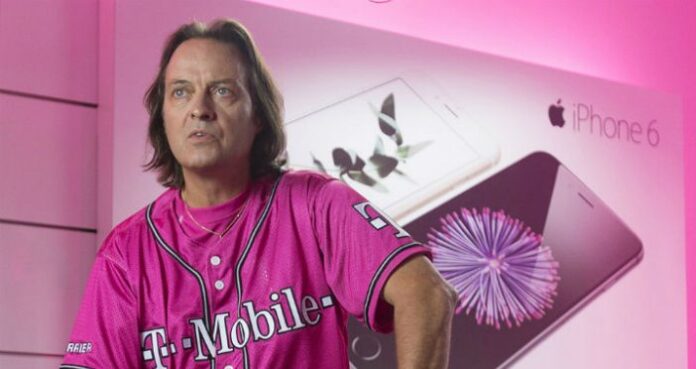T-Mobile CEO John Legere said he may have gone too far in criticizing EFF intent
T-Mobile US CEO John Legere took a more conciliatory tone in his latest defense of the wireless carrier’s controversial Binge On video streaming service.
Taking yet again to T-Mobile US’ blog page, Legere said the carrier remains a fierce advocate for consumer protection and in upholding net neutrality standards, but did admit he may have gone too far in questioning recent reports about Binge On and that when enabled the service does indeed impact video quality of all streaming content.
“Look, by now you know that I am a vocal, animated and sometimes foul mouthed CEO,” Legere wrote. “I don’t filter myself and you know that no one at T-Mobile filters me either (no, they don’t even try). That means I will sometimes incite a bit of a ‘social media riot,’ but I’m not going to apologize for that.”
Legere then went on to apologize to the Electronic Frontier Foundation, which last week put out a report that found Binge On throttled the streaming speed of all video services to 1.5 megabits per second when enabled, while video passed through T-Mobile US’ network at up to 5 Mbps when the service was disabled.
Legere initially responded to the EFF findings by stating: “There are groups out there confusing consumers and questioning the choices that we fight so hard to give our customers. Clearly we have very different views of how customers get to make their choices – or even if they’re allowed to have choices at all.”
In his latest statement, Legere admitted his comments may have gone a step too far in terms of questioning EFF’s position.
“I will however apologize for offending EFF and its supporters,” Legere said. “Just because we don’t completely agree on all aspects of Binge On doesn’t mean I don’t see how they fight for consumers. We both agree that it is important to protect consumers’ rights and to give consumers value. We have that in common, so more power to them. As I mentioned last week, we look forward to sitting down and talking with the EFF and that is a step we will definitely take. Unfortunately, my color commentary from last week is now drowning out the real value of Binge On – so hopefully this letter will help make that clear again.”
The other major finding of the EFF report was “that T-Mobile is throttling video downloads even when the filename and HTTP headers (specifically the content-type) indicate the file is not a video file.”
The EFF said they reached out to T-Mobile to better understand the process.
“We asked T-Mobile if this means they are looking deeper than TCP and HTTP headers, and identifying video streams by inspecting the content of their customers’ communications, and they told us that they have solutions to detect video-specific protocols/patterns that do not involve the examination of actual content,” the report added.
The report followed up claims late last year from YouTube, which said the Binge On platform is throttling its videos and impacting quality. YouTube has so far not signed up to be part of the Binge On offering, which T-Mobile US had stated was due to not adhering to the platform’s technical requirements.
“Reducing data charges can be good for users, but it doesn’t justify throttling all video services, especially without explicit user consent,” a YouTube spokesman told The Wall Street Journal.
Legere did admit the Binge On service when enabled did indeed limit the video quality stream of all content, but that consumers watching video content on smartphones would not likely notice the difference.
“We use our proprietary techniques to attempt to detect all video, determine its source, identify whether it should be free and finally adjust all streams for a smaller/handheld device,” Legere explained, adding, “most video streams come in at incredibly high resolution rates that are barely detectable by the human eye on small device screens and this is where the data in plans is wasted.”
Legere went on to note the Binge On service was completely optional and consumers could disable the service whenever they were so inclined thus it provided customers with the ultimate choice and did not offend the tenants of net neutrality.
The Federal Communications Commission sent a letter to T-Mobile US seeking additional insight into the Binge On service. FCC Chairman Tom Wheeler initially stated he did not think the Binge On service violated current net neutrality or recently instituted Open Internet provisions, indicating the offer was “highly innovative and highly competitive.”
Legere also defended T-Mobile US’ decision to enable Binge On as the default setting, claiming the move was also consumer friendly.
“We don’t like to make customers dig around to find great new benefits – that is something a traditional carrier would do when they really hope you, the consumer, won’t take any action,” Legere said. “Can you imagine the disappointment, if people saw our TV commercials about Binge On, then went to watch 10 hours of video expecting it to be free, and only then learned that they needed to go into their settings to activate this new benefit?”
Bored? Why not follow me on Twitter

